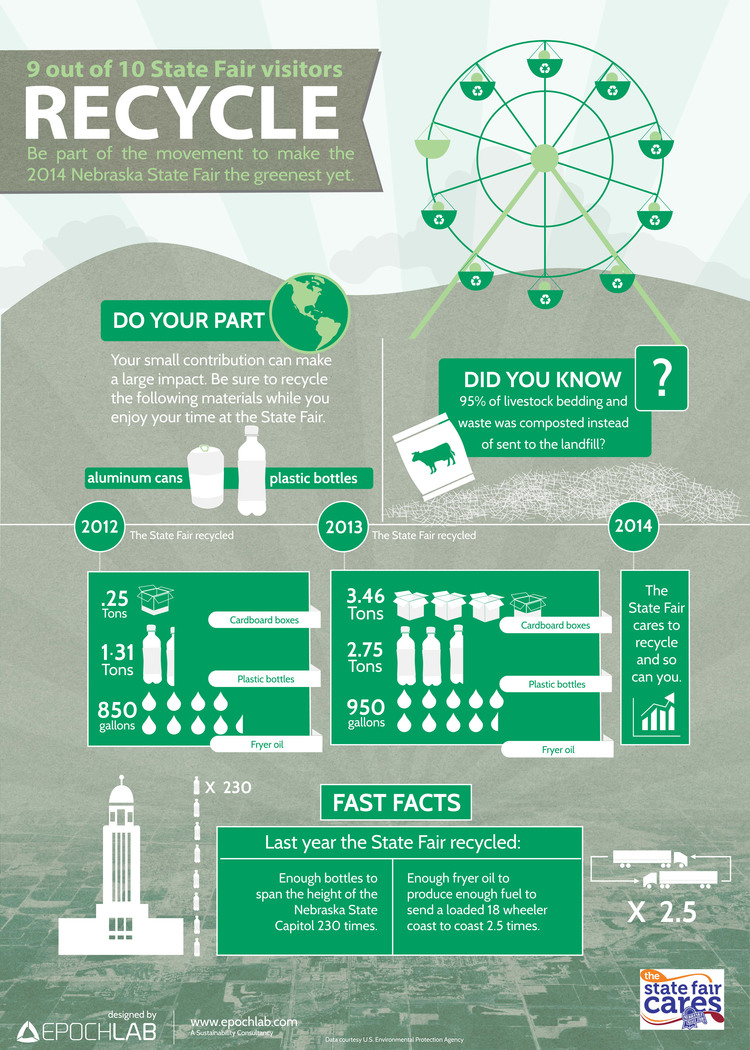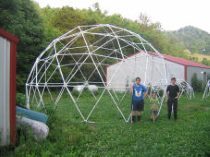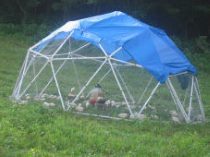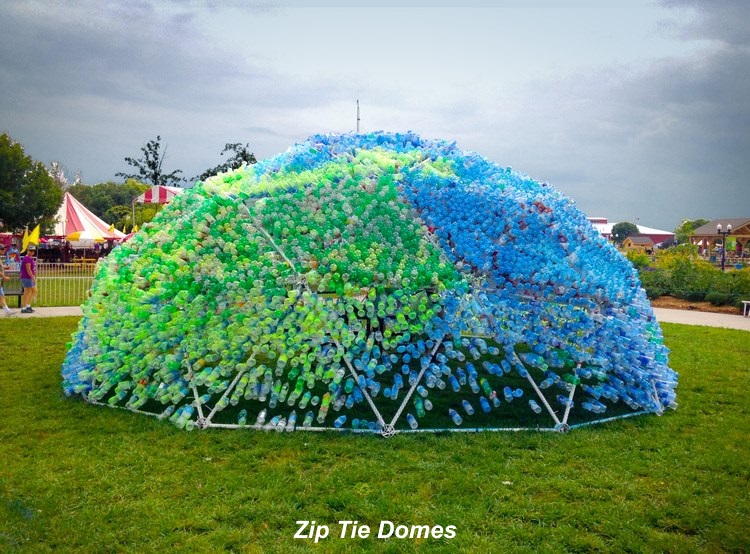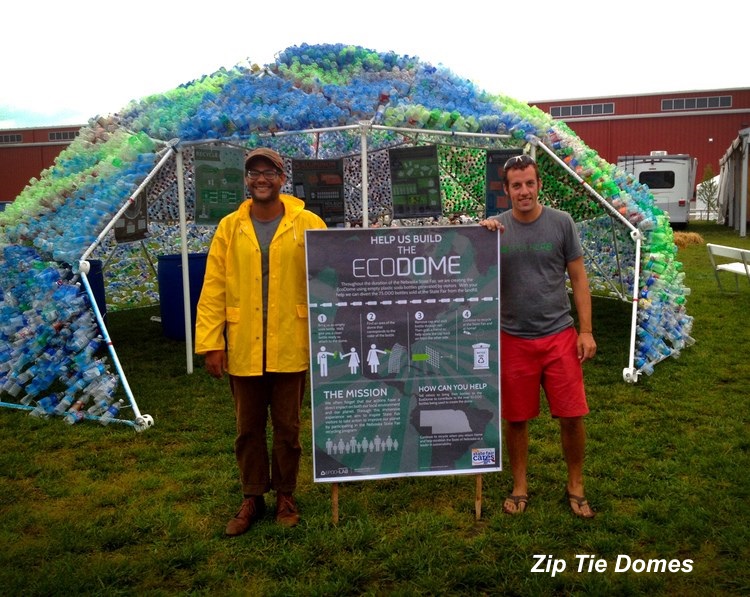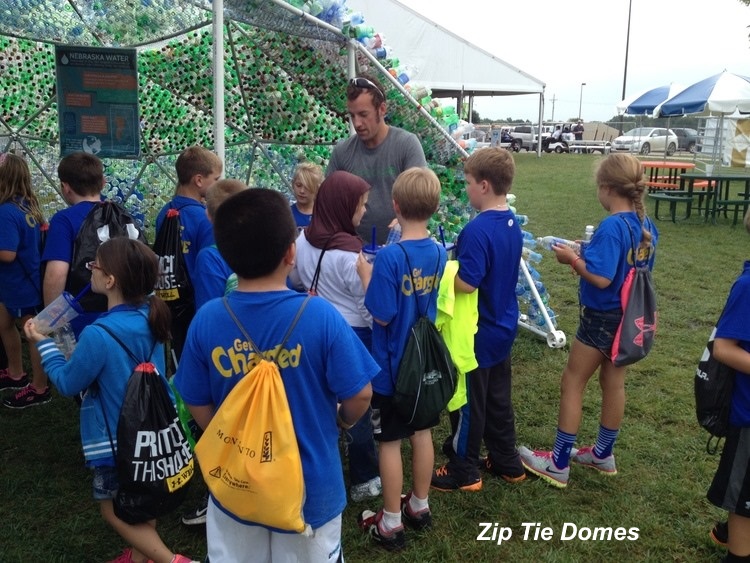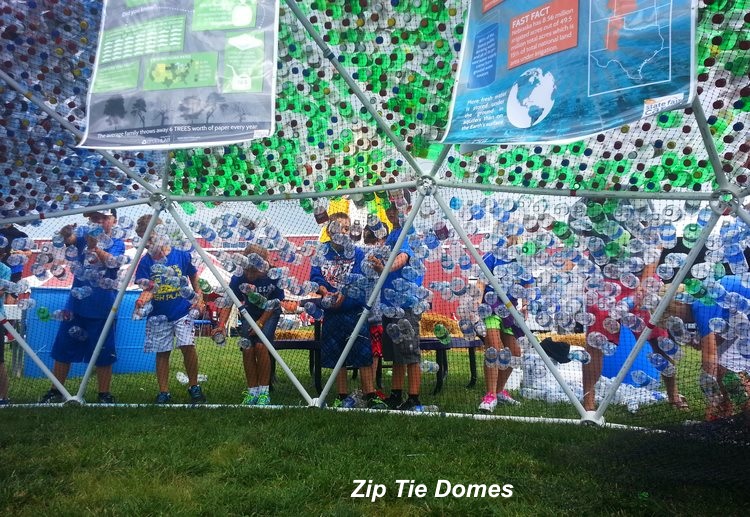
Attaching the plastic bottles to the EcoDome to visually learn about recycling.
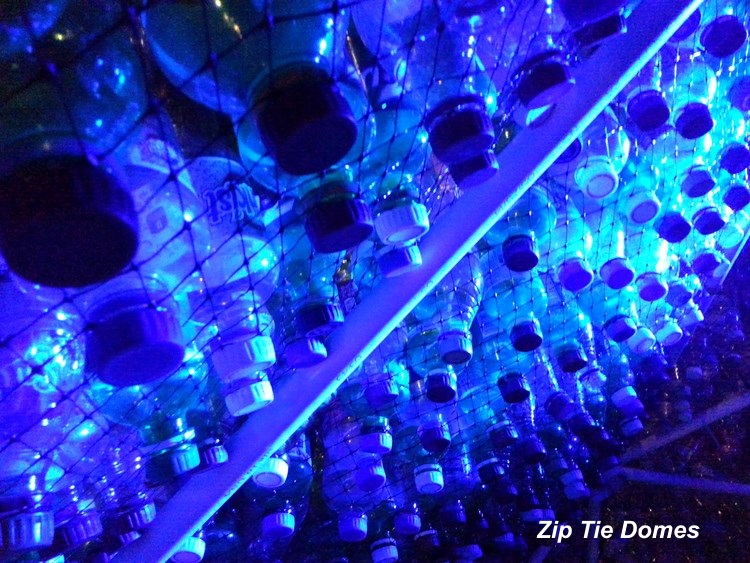
The EcoDome at Night. What a cool idea!
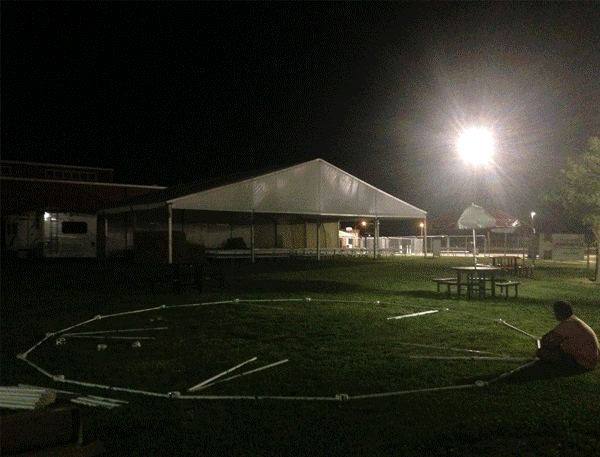
Timelapse Building of the EcoDome
September 5, 2014
We've just returned from eight days in Grand Island, Nebraska building the ECODOME at the Nebraska State Fair. The ECODOME is a 24' in diameter geodesic dome. The PVC structure, held together with hundreds of zip-ties grew throughout the duration of the fair to hold more than 12,000 plastic bottles recycled by visitors.
So why did the State Fair hire us (EpochLAB) to spend 300 man-hours building this complex dome? Well here's what we pitched:
The goal was to use it as a platform to celebrate the State Fair's accomplishments in sustainability practices on it's path towards becoming a zero waste event. By critically targeting waste, they have, in a few short years moved over 83% total waste diversion to recycling streams including 72% of plastic bottles sold at the Fair, 98% of livestock bedding, and a 1400% increase in cardboard recycling volume increase from 2012 to 2013. The Fair continues to challenge itself by establishing very robust goals for future improvements. Celebrating accomplishments may seem very surface level, but it actually serve the important task of showing people that by recycling they are joining a winning and successful program. After all, we all want to be part of something successful.
Fun and games aside, the EcoDome had an important mission of engagement and encouraging environmentally responsible behaviors (ERB) from the over 300,000 State Fair visitors this year. The program was designed to achieve a number of objectives that are commonly known to affect our behaviors.
Modeling Behavior
The assembly of the dome was designed to be crowd-sourced meaning that we wanted visitors to have the ability to add their own bottle to the dome as a way to mimic and symbolize the behavior of recycling. We also sought to engage the younger elementary and middle school demographic long enough to throw in a quick lesson on the value of recycling and the impact it has at a global scale. This also had the important task of establishing a social norm of recycling. Many studies show that people tend to mimic the behaviors of those around them. For example, I don’t usually wear a seatbelt when I’m driving (it’s bad, I know), but when I’m riding with a friend that puts his on, I’m far more likely to wear a seatbelt myself. I’ve adopted his positive behavior.
Establish Ownership
Once people have participated by adding a bottle or by visiting the dome, they establish some sense of ownership of the project. The more that recycled at the fair, the more the dome grew. Visitors reported being more inclined to participate in recycling at the fair since they knew it will directly impact the project that they have participated in.
Visualization
Sometimes visualizing something can be more powerful than words or numbers on a page. Helping visitors wrap their heads around the scale of recycling happening at the fair simply makes things more tangible. The dome created a very dramatic impact. Few people have seen 12,000 recycled plastic bottles in one place at one time. They were even more captivated by learning that it’s only 15% of the actual amount recycled at the Fair. It captured attention and captivated quickly. The visual gravity of the dome left a lasting impression on visitors establishing a physical value to the choice they have of recycling.
Prompting Behavior
We’ve all been there. You are a conscious shopper, and have several reusable bags for groceries and other purchases. You arrive at the counter and realize you’ve forgotten them.
Wouldn’t a little reminder on the door help you remember to grab them? Even though people are persuaded to do a behaviors they might simply forget. The EcoDome was positioned front and center on the fairgrounds. Tens of thousands walked passed it. It was an elaborate, yet productive reminder to visitors to continue to recycle at the Fair and at home and school.
Our week at the Nebraska State Fair reinforced our approach to effectively promoting sustainable behaviors. If you find yourself realizing that human behaviors are important to the success of your sustainability program, remember the following:
1. Understand the barriers
2. Make it visual
3. Leverage Social norms
4. Make it personal
Towards sustainability,
Matan and Garth
